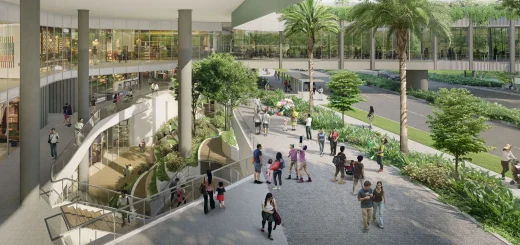Indranee Proposal on PSP’s housing scheme
A housing plan suggested by the Progress Singapore Party (PSP) not to include land cost in valuing Housing Board flats would not reduce Singapore’s reserves but would also benefit only a limited set of flat buyers at the expense of all Singaporeans.
PSP Non-Constituency MPs Hazel Poa and Leong Mun Wai believed it would address the problems of housing affordability and accessibility, while she argued that it would make things worse.
Ms. Indranee, in her speech, directly addressed Singapore’s one million homeowners by saying, “The PSP advertises it as affordable housing with no disadvantages.” To good to be true, perhaps?
And remember: “If anything seems too good to be true, it generally is.” This means, “There is a catch you haven’t been warned about.”
Ms. Indranee was one of four ministers to weigh in during a discussion on two resolutions concerning public housing; the first was proposed by National Development Minister Desmond Lee, and the second was proposed by Mr. Leong and Ms. Poa.
According to Ms. Indranee, “construction cost and a notional location premium” are used to determine the “user price” at which a new apartment may be purchased under the PSP’s program. However, Mr. Leong did not specify how this notional location would be determined.
The land cost that HDB recorded at the time of purchase, plus some accumulated interest, would need to be paid by the person if he were to sell his flat in the resale market after the minimum occupancy term.
Ms. Indranee described the program as a “national prepaid renting plan with an option to purchase.”
And that’s why Mr. Leong talks about the ‘user price,’ not the ‘buy price. He understands that this is not ownership but rather a kind of prepaid leasing.
She then moved on to the topic of land, saying that under Mr. Leong’s concept, the Build-To-Order user would not have to pay for land value or face any expense of the property until he decides to sell it.
She said that all other Singaporeans, spanning many generations, pay for the land for as long as the user resides there. They will be paying for it in three ways: monetary loss due to depletion of communal savings; unfairness as some people reap benefits at the price of others; and bad policy with far-reaching effects on the housing market as a whole.
Deflation of common savings
The state sells land on reserves at market rate. When this occurs, the value of the land itself is transformed into money. In order to ensure that future generations may benefit from the reserves’ high value, Singapore reinvests the money it receives from the sale of land in the reserve fund.
Half of the yearly investment returns are contributed to the national budget as the Net Investment Returns Contribution (NIRC), while the other half is re-invested for the benefit of present and future generations.
However, under the PSP plan, customers may take use of the territory without shelling out any cash. For as long as they continue to live in the apartment without paying for the land, she said, it will be a drain on the country’s resources.
To put it another way, under the existing system, we would be foregoing the investment funds and whatever profits they may have generated. Consequently, the annual NIRC contribution to the Budget will decrease.
She also warned that the government will have to increase taxes or reduce expenditure to make up for the NIRC’s current funding shortfall.
Unfair suggestion
For her part, Ms. Indranee argued that the PSP’s plan is not equitable to Singaporeans since it provides a generous incentive to homeowners who choose not to sell their apartments.
Sellers of condominiums, on the other hand, will be responsible for the land’s recorded cost plus interest, without any government assistance.
Those one million current homeowners should think about what PSP’s plan entails for them. Those of you who own HDB (flats) in Singapore right now should consider what the PSP’s plan implies for you, she said.
We’re building a new neighborhood next to you, and it will include apartments just like the ones you’re in, but for a fraction of the price. The potential impact on your home’s worth deserves your attention. Think about the question, “Is it fair when someone else gets the same apartment as you but at a lot lesser price because of the way the policy was designed?”
Awful housing policy
Ms. Indranee argued that homeowners may be worse off under the PSP model since they would be required to pay the reported land cost when selling their apartment without receiving any incentives or subsidies.
According to her, this might reduce their overall profit and make it difficult for them to buy a new house. Unlike the present HDB homeownership model, which allows Singaporeans to own their apartment at an affordable price and profit from general economic development when they monetize it, this one does not allow for this.
The gray area around the PSP’s scheme’s legality is also problematic. She claimed that Mr. Leong had not made it clear whether the user receives legal ownership to the property when he purchases it from HDB or only the right to inhabit it.
The individual is not the owner if they just have the right to occupy the space. As Ms. Indranee put it, “you don’t own the land until you sell it and get the money for it.”
To sum up, you only own anything until you sell it. However, under our existing plan, you are considered a legal owner as soon as you make the purchase of your apartment.
She went on to point out that despite Mr. Leong’s promises of a bright future for Singaporeans, the irony is that when living in a flat under his proposed arrangement, tenants are not owners: “You only become the owner, for a little time before you sell it.”
Mr. Leong’s plan is to make Americans, who traditionally own their homes, renters instead. Furthermore, in order to become a homeowner, one must first sell their property, with no guarantee that they would be able to purchase another.










